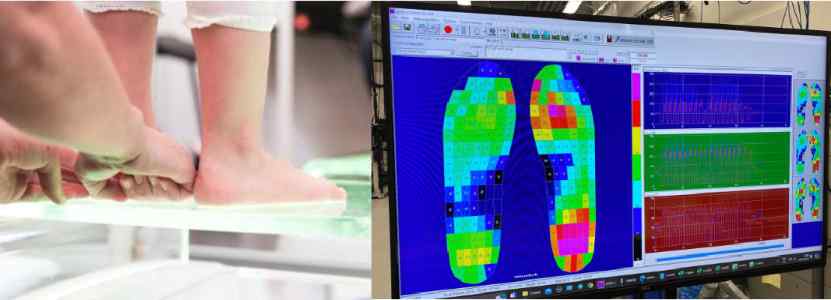We continue to develop short courses in response to the needs expressed by the biomedical community, including clinical, academic and commercial sectors.
So in addition to the courses currently offered, we are keen to engage further with these sectors to develop new courses that meet emerging or unmet professional development needs.
The Orthotic Management of Common Midfoot and Rearfoot Conditions

This Continuing Professional Development (CPD) module is one of four CPD classes delivering knowledge on the Management of Musculoskeletal (MSK) Foot and Ankle Conditions. Delivered entirely online, users can complete this course in their own time, at their own pace. This is quite different from traditional face-to-face educational events, courses or seminars where you hear the lecture once; you will have access to this module for three months. This allows for reviewing the learning material multiple times. This gives the user the opportunity to put into practice newly gained clinical skills and knowledge and revisit the content to consolidate the learning.
This class specifically focuses on the theory and orthotic management of common rearfoot and midfoot conditions. The learning material will take you through the following:
- Foot and ankle biomechanics
- Evaluating the published literature on past and present biomechanical theory
- Clinical anatomy
- Foot and ankle stability
- Describe the clinical tests to assist in differential diagnosis of a range of common rearfoot and midfoot musculoskeletal foot and ankle pathologies
- Describing rearfoot and midfoot pathologies
- Describing common orthotic design features when treating the rearfoot and midfoot, explaining how they achieve their therapeutic effect
This learning material has been created by a clinical Specialist Orthotist at the National Centre for Prosthetic and Orthotics, providing current and up-to-date research for effective evidence-based practice. The creator of this content has delivered education and training in this specialist area at 50+ national conferences and short courses in the UK, including those run by the British Association of Prosthetists and Orthotists, and has been an invited speaker at international conferences.
This class is now associated with 50 CPD points from the Royal College of Surgeons of Edinburgh.
For more information about the course content and enrolment, visit the CPD page.
If you have any questions regarding the course content please email Christopher Cox at c.cox@strath.ac.uk
Introduction to Clinical Gait Analysis
This on-line course will cover the practical and theoretical components of clinical gait analysis. It will include a revision of the gait cycle, the mechanics of gait (joint angles, moments and powers), a discussion on the theories of gait (why we walk the way we do) and an introduction to gait abnormalities. Including an in depth case study. The course will use a combination of video, audio supported powerpoint lectures, word documents, quizzes and weekly discussion forums.
There is no expectation of existing knowledge of biomechanics or gait analysis.
The course will be delivered completely online with an estimated commitment of 15 hours study at the students own convenience. Book the course Introduction to Clinical Gait Analysis.
Gait Analysis in Neurological Conditions
This online course builds on the introductory course (Introduction to Clinical Gait Analysis) which covered the gait cycle, theories of gait and simple measurement techniques. Using similar teaching methods (video, narrated lectures, case studies, quizzes and discussion fora) this new course will develop an understanding of 3D Kinematics, Kinetics, Electromyography and Energy through a series of clinical case studies featuring neurological conditions (stroke, polio and CP).
There is an expectation of some prior knowledge of gait analysis from undergraduate courses or clinical experience.
The course will be delivered completely online with an estimated commitment of 20 hours of study over an 8 week period. Study times will be at the student's discretion. Book the course Gait Analysis in Neurological Conditions.
All short courses will run subject to demand. Please delay making your travel arrangements and booking accommodation until you receive confirmation that the course will run.